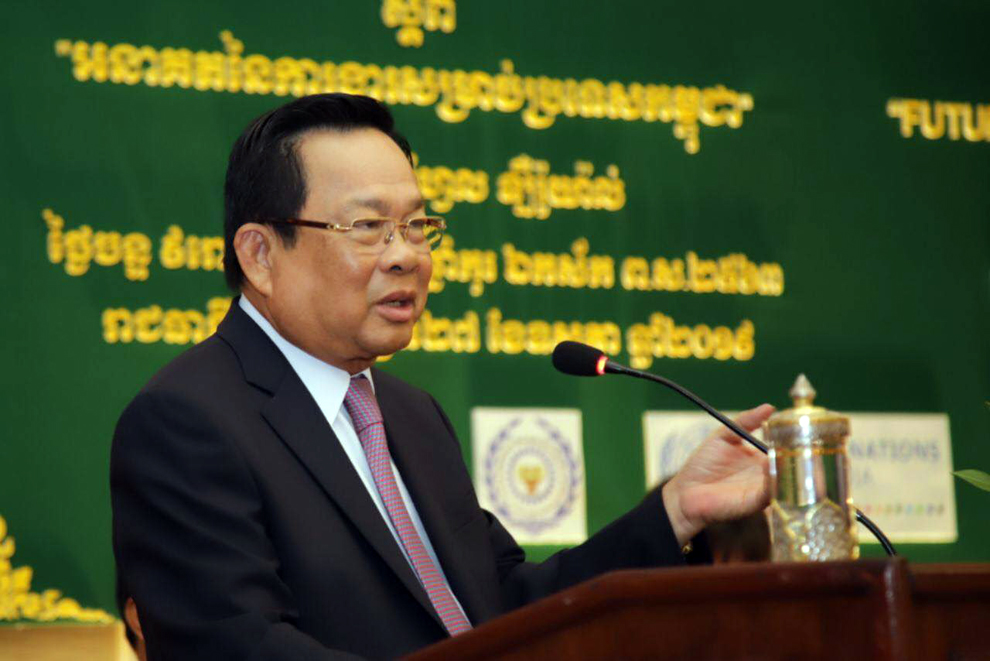
Minister of Labour and Vocational Training Ith Sam Heng speaks at the High Level Dialogue on the Future of Work for Cambodia at the Raffles Hotel Le Royal on Monday. MINISTRY OF LABOUR AND VOCATIONAL TRAINING
Digital technology and the arrival of the Fourth Industrial Revolution has the potential to create new jobs or cause unemployment for Cambodian youth if they are not properly trained to meet market demands, Minister of Labour and Vocational Training Ith Sam Heng said on Monday.
Speaking during the High Level Dialogue on the Future of Work for Cambodia at the Raffles Hotel Le Royal in Phnom Penh, he said the forum was initiated to hold discussions between policy makers, representatives of employees and employers, and Cambodia’s various development partners.
This, he said, would help them to be better prepared to respond to the changing world of employment.
Sam Heng said a study conducted by the International Labour Organisation (ILO) in 2016 on the future of jobs facing the risk of automation suggested that 56 per cent of the total jobs across five Asean countries would face such a situation over the next two decades.
Jobs at risk of automation in Cambodia amounted to 57 per cent, with Vietnam’s rate at 70 per cent, Indonesia 56 per cent, the Philippines 49 per cent and Thailand 44 per cent.
The 2018 World Economic Forum’s report on future employment prospects said technology advancement had already negatively affected some sectors, but that it had also created many new jobs directly and indirectly for other sectors and occupations.
The Kingdom has an especially young workforce. The percentage of Cambodians under the age of 25 is currently 49.5 per cent, while people aged between 15 and 24 make up 28.9 per cent of the working age population (people aged between 15 and 65).
“The workforce, especially youths, need to receive general knowledge and quality technical and vocational training, as well as chances to undertake studies acquiring a skill that responds to the demands of the job market locally and in the region,” Sam Heng said.
He continued that Cambodia is experiencing an imbalance between supply and demand for certain skills, with the problem made worseby the country’s limited education system.
“Technology development in the phase of the Fourth Industrial Revolution will cause job losses [through automation], but it also creates new jobs. But those who lose jobs in the phase may not find new jobs if they do not receive training in sought after skills and enhance their capacity,” Sam Heng said.
Collective Union of Movement of Workers (CUMW) president Pav Sina, who was in attendance at the dialogue on Monday, said he believed Cambodia’s economic future did not need to depend only on employment through the garment sector.
“The government must prepare skills training in preparation for youths when all the new technology jobs arrive. Our youths will have skills at hand and then they will not face challenges."
“In our country, there is a shortage of institutes that train a number of skills for people, youth and university students. We see that if each school and faculty have facilities to provide additional training for students, it can help them to seize job opportunities.
“What is important is that the Ministry of Labour and Vocational Training expands centres or institutes that train new skills in order for youths to avail themselves of such training,” Sina said.














